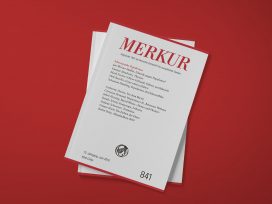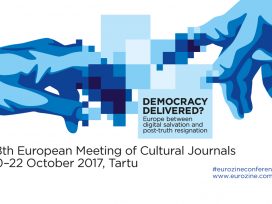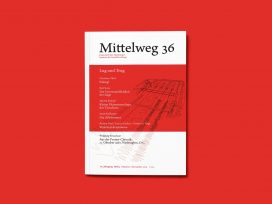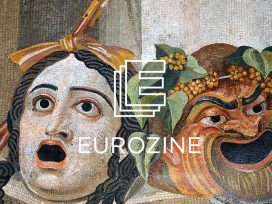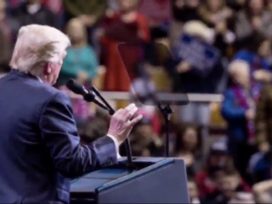With the concept of post-truth, many things we take for granted are suddenly up for debate – for instance the idea that, before the current era, our political sphere was democratic and inherently enlightened. Or, that our media was once free of ideological bias. If so, what about Saddam Hussein’s ‘weapons of mass destruction’? Or the apparent criminalization of the option of voting ‘no’ in the referendum on the Maastricht Treaty in 2005, where talk in the French media was about a ‘National Socialist’ choice? So, we should reflect on the reliability of the concept of post-truth and look more closely at the supposed novelty of the phenomenon it has identified.
First, however, the debate needs to be put in relation to a classic problem of political philosophy: that of ‘factual truth and political opinion’, as famously discussed by Hannah Arendt in her essay ‘Truth and Politics’. Even then, Arendt drew attention to a ‘clash of factual truth and politics, which we are seeing today on such a large scale’.
Truth and democracy
Arendt’s general argument is as follows: truth is not the only value in the political sphere, especially in a democracy. In a sense, it is opinion, more than truth, that constitutes the true foundation of a democracy. Nevertheless, the way opinions are formed in a democracy must have a certain respect for factual truths.
If we follow Arendt, truth cannot be conceived of as having a simple and intrinsic relationship with democracy, for two principal reasons. First, human diversity, and the idea of pluralism, are fundamental dimensions of politics and democracy, so that diversity of opinions must be respected: ‘All governments rest on opinion,’ writes Arendt, quoting James Madison.
Second, the political domain is that of action, of praxis, of decision-making. In practical politics, there are many decisions that cannot be made on the basis of rational proof. A good example of the irrationality of the political decision-making process came during the French presidential election campaign in 2017, when Benoît Hamon, the Socialist Party candidate, proposed a ‘universal basic income’ for all French citizens. Some, including figures within the Socialist party, dismissed the proposal as utopian and unrealistic. Some saw it as an acceptance of mass unemployment, or as introducing a new form of inequality, with the workers of the South subsidizing idlers in the North. Others, however, welcomed the move as a revolution in our relationship to work, at a time when technological change is causing upheavals in the workplace (Hamon also proposed taxing robots). It is worth recalling that, even at the end of the eighteenth century, a thinker of the calibre of Thomas Paine saw a universal income, what he called the ‘citizen’s dividend’, as a way of recompensing the injustice done to men through the introduction of private property, and a way of encouraging the poor to participate in civic life, by saving them the need to eke out a subsistence existence. Clearly, no one can prove beyond doubt whether the effects of a basic income will be positive or negative. We have to debate it, explain why work is a central value – or not – and define what constitutes work – all of which implies a certain conception of society.
Moreover, in politics no one can claim to be able to predict all the secondary effects of any particular reform or future reactions to it. There are numerous factors to take into account and numerous values at stake, so much so that there is never absolute certainty as to what action should be taken, merely probabilities (what Hans Blumenberg called ‘the principle of insufficient reason’). This is why the idea of a political science – or a science of politics – that claims to be the implementation of a truth is both illusory and dangerous. From Plato through to a certain strain of Marxist–Leninism, versions of this illusion have on occasion prevailed. This illusion is inherently anti-democratic in nature. Any politics that sees itself as being based on truth exempts its adherents from having to defend it once they are in power.
We might call this the ‘epistemocratic’ temptation, a modern version of which is the technocratic temptation – the idea that government should be left to experts and technocrats. After neoliberalism was presented as the only rational path, economics has replaced politics: the credo ‘there is no alternative’ expressing the idea that there is only one legitimate interpretation of what is good for our future.
But does this mean that democracy is simply rule by opinion, particularly the kind of opinion that feels no need to concern itself with facts? In her text on Socrates, Arendt recalls that the Greek word doxa, or opinion, was linked to the sphere of phainesthai, of appearing in public, and from there to the agôn, or the ‘conflict’ that underpins democratic debate. But does this culture of debate where everyone, even the ‘least wise’, can make a contribution imply that all opinions are equally valid, and that facts have no role to play in political debate? It is no accident that Greek democracy was born at the same time that scientific rationalism, or a certain type of empirical and rational ‘enquiry’, superseded the ancestral authorities (something that Arendt barely mentions). It can also be said that the modern Republic made way for science as a jurisdiction of truth, founded on empirical, controlled procedures, particularly in schools and universities. This point must be emphasized, since it is clear that while truth may not be the only value in politics, a complete separation between truth and politics would end up abandoning democracy to a state of relativism, exposing it to the demagogy that Plato so feared. Here, everything is permitted, politicians can lie as much as they please, and the most important thing is persuasion, while truth becomes irrelevant.
Truth and opinion
So, we need to give more thought to what we call ‘opinion’ and to its relationship with truth. It would be absurd to say that mathematical truths, and more generally scientific truths, ‘seem true to me’. Imagine saying ‘it seems to me that 4 + 4 = 8’. The same applies to what Arendt calls ‘factual truths’, even if the question becomes more complicated for facts pertaining to the distant past. For example, I cannot say ‘In my opinion, the majority of the British electorate voted to remain in the European Union’; that is quite simply false. It is therefore surprising to hear political figures indulging in this kind of discourse without it seeming to bother many people. The opposite of the ‘epistemocratic temptation’ is the ‘post-truth’ or ‘post-factual’ temptation. The inauguration of Donald Trump is a recent illustration of this tendency: after the ceremony, photos indicated that the turnout was considerably lower than that at Barack Obama’s inauguration. The following day Trump spoke of ‘fake news’, claiming he had ‘seen’ a million and a half people in the audience during his speech. So here we have the dokei moi, the subjective perception that is supposed to count more than documents or photographs.
Arendt supports the notion that ‘facts inform opinions’ and that, in a democracy, opinions must ‘respect factual truth’. This is necessary so that ordinary topics can be debated and that the state can set limits on its power. Public authority can promote a certain conception of reality through propaganda, public media, school curricula and so on, but it cannot alter factual reality as it sees fit. This is obviously not the case for totalitarian regimes, which in the past went as far as to deny the very existence of historical figures, to destroy photographic evidence and to construct ‘alternative facts’.
Arendt bypasses, to a certain extent, the distinction between totalitarian states and democratic ones: she refers to history books in the USSR from which Trotsky had been expunged (sometimes literally), but also to debates about who was responsible for the outbreak of the First World War. Nevertheless, she retains a distinction between the two types of propaganda, and the two types of regime. She concludes her discussion of the debates – at once political, legal (on the question of reparations) and historical – about the origins of the First World War as such:
During the twenties, so a story goes, Clémenceau, shortly before his death, found himself engaged in a friendly talk with a representative of the Weimar Republic on the question of guilt for the outbreak of the First World War. “What, in your opinion,” Clémenceau was asked, “will future historians think of this troublesome and controversial issue?” He replied, “This I don’t know. But I know for certain that they will not say Belgium invaded Germany.” We are concerned here with brutally elementary data of this kind, whose indestructibility has been taken for granted even by the most extreme and most sophisticated believers in historicism.
Arendt thus identifies data that cannot be denied, even by constructivist historians who question the possibility of historical ‘facts’. However, for Arendt, even this line could be crossed, not only in the educational practices of totalitarian propaganda, but possibly also in the context of war, when democratic states give way to forms of interim dictatorship:
It is true, considerably more than the whims of historians would be needed to eliminate from the record the fact that on the night of August 4, 1914, German troops crossed the frontier of Belgium; it would require no less than a power monopoly over the entire civilized world. But such a power monopoly is far from being inconceivable, and it is not difficult to imagine what the fate of factual truth would be if power interests, national or social, had the last say in these matters.
Two types of ‘post-truth’
We can thus identify two different types of ‘post-truth’. On the one hand there is the attitude of a Donald Trump, where what one wants to believe is more important than what can be proved. This is less a case of outright lying than of refusing to rank degrees of plausibility or proof. Better informed or better substantiated opinions are given no more credence than opinions that offer no proof or argument. At work here is a conspicuous disdain for verification or argument, which would allow an opinion to be ranked according to the amount of truth it contains, or the extent to which it corresponds to facts.
‘Post-truth by indifference’ should be distinguished from a second attitude, which might be called the deliberate production of false information. One notorious example is the figure of 350 million GBP that, during the Brexit referendum campaign, UKIP claimed that Britain paid to the EU per week. The figure was shown to be entirely inaccurate, but in the meantime had been plastered across billboards and buses throughout the country, making a powerful impact on voters. A second example is even more striking: in January 2017, the New York Times published the story of Cameron Harris, a graduate who, during the American presidential campaign, had set up a website on which he claimed that tens of thousands of fraudulent Clinton ballot papers had been discovered in an Ohio warehouse. The story was quickly debunked, but still widely shared, so that the website rapidly became one of the internet’s 20,000 most visited addresses, earning Harris $100,000 in a few months.
In so far as these aberrations are indeed new to liberal democracies, at least in their sheer scale and ‘viral’ nature, then it is clear that social media and the internet play a role. The concept of the ‘post-truth era’ was first used by Ralph Keyes in 2004 to describe a general tendency, not so much in the sphere of politics as in the new relationships that we have with information on social media. We no longer wait to inform our opinions with facts and we share the ‘news’ we like before checking it – we might talk of ‘fact-sharing’ as opposed to ‘fact-checking’.
But a different interpretation is also possible. In recent decades, we have seen a technocratic negation of democratic politics and neoliberal policy presented as objective necessity. Unfortunately, this includes arguments used by the European Union in defence of severe austerity policies. Throughout the euro crisis, every objection to the technocratic neoliberalism of the EU was discredited as irrational, populist, nationalist or otherwise irresponsible, especially by the serious mainstream media. In response, the new populist movements claimed that everything the traditional media said was a product of the liberal establishment and were unscrupulous about presenting spurious information and false statistics to support their point of view. The danger, then, is going to the other extreme and forgetting the second necessary condition of a meaningful public debate, whereby opinions must respect factual truths.
However, it is not simply a form of anti-intellectual populism that has succeeded in challenging the very idea of ‘factual truths’, not to say notions of truth as such, but also complex intellectual and philosophical trends that have managed to present themselves as the cutting edge of contemporary critical thought. A controversy that has raged since the 1980s, with the emergence of postmodernism and the rise and rise of ‘French Theory’, has undergone a renaissance against the backdrop of ‘post-truth politics’. The claim is that this form of ‘ultra-critical’ reflection, which sought to do away with any notion of truth that is independent of discourse and the circumstances of its articulation, ended up leaving intellectuals powerless in the face of the ideological manipulations of a populist right acting as a vehicle for Russian interests. How can we object to ‘post-truth’ if we subscribe to Nietzsche’s dictum ‘there are no facts, there are only interpretations’; if, following Michel Foucault, we understand the distinction between truth and falsehood as just one of many systems of exclusion; or if, following Derrida, we dismiss the idea of an ontologically stable referent in favour of an infinite différance between signifiers?
These questions might seem absurd, given the beliefs of Foucault, or Jacques Derrida’s highly complex relationship with tradition, which couldn’t have less in common with the crass ethnocentricity, the aggressive ‘America first’ xenophobia and misogyny that are the hallmarks of a figure like Trump. The same can be said of American pragmatism, whose advocates were also progressive intellectuals, but whose conception of truth as the result of a practical consensus between various groups – or ‘whatever works’ – has exposed them to similar criticism (‘Trumpism is a vulgar form of pragmatism’).
If these trends do have anything in common, then, it is not in any shared ‘values’, but in the implications of dismissing the idea of truth as an alignment between discourse and reality. In order to stand up to Trump, so the argument goes, it is necessary to acknowledge that relativist positions are untenable, and to stand firm in defence of a truth that is independent of power and language.
There are two responses to this problem. The first seeks to show that the thinkers accused of absolute relativism and a rejection of a distinction between truth and falsehood never claimed anything of the sort. In Foucault’s case, asking how the ascription of the values of truth and falsehood can systematically exclude certain types of statement did not entail a rejection of this distinction per se. Equally, the reduction of Derrida’s argument to the slogan ‘there is nothing outside the text’ gave credence to the notion that deconstruction rejected the very possibility of verification and falsification, something that can easily be refuted simply by looking at how Derridean discourse operates in practice. Pragmatism, meanwhile, sought to redefine truth in terms of activity and social interaction, not to destroy the idea of truth as such – and so on.
At a political level, these philosophers were clearly not calling for less critical analysis and examination of ideology and power, but for more. They did so precisely by focusing not only on ‘populists’ or the extreme right, but also on the effects of the power of scientific disciplines, or disciplines that laid claim to scientificity. In his lectures at the Collège de France in 1978–9, for example, Foucault sought to show how neo-classical economics was a product of the matrix of knowledge and power and served as the ideology of neoliberal governmentality. In other words – and here we come to the second response – one cannot simply respond to ‘post-truth’ with a vision of ‘pure’ truth that avoids any analysis of the ‘truth games’ that cause economic discourse to be an instrument of domination irreducible to the ‘ideological’ production of ‘falsehood’.
Contemporary critical thinking therefore needs to operate on several fronts, and in several registers. The assumption that scientific reason will automatically counteract prejudice and distortion stands in the way of an examination of how certain forms of rationalism are used as instruments of power, reducing ‘the people’ to their ‘irrational passions’ whenever they dare strike back against the order of markets, the free movement of capital, and the flexibilization of labour. Positions developed under the ill-fitting umbrella of ‘postmodernism’ can be of some use in challenging the ‘epistemocratic temptation’. However, they are less suited to combating a populist discourse that has not the slightest respect for scientific discipline or any other kind of ‘knowledge’, and that prefers instead to play on popular grievances, pitting the working class and middle class against the ‘elites’ – whether political or intellectual – while putting a new spin on contemporary capitalism: ‘America first’, ‘France for the French’, and so on. This type of thinking, which wears its anti-intellectualism and indifference to academic rigour as a badge of pride, cleverly exploits a register that is quite different from the one operated by postmodernism.
That is why Arendt, who belonged to the phenomenological tradition from which deconstruction emerged, but who pursued her political thought further, is surely a better point of reference. Faced with regimes that sought to transform and deny historical fact while claiming to be scientific, Arendt realized both the peril of claiming a monopoly on truth and the danger of abandoning the concept of truth altogether.

